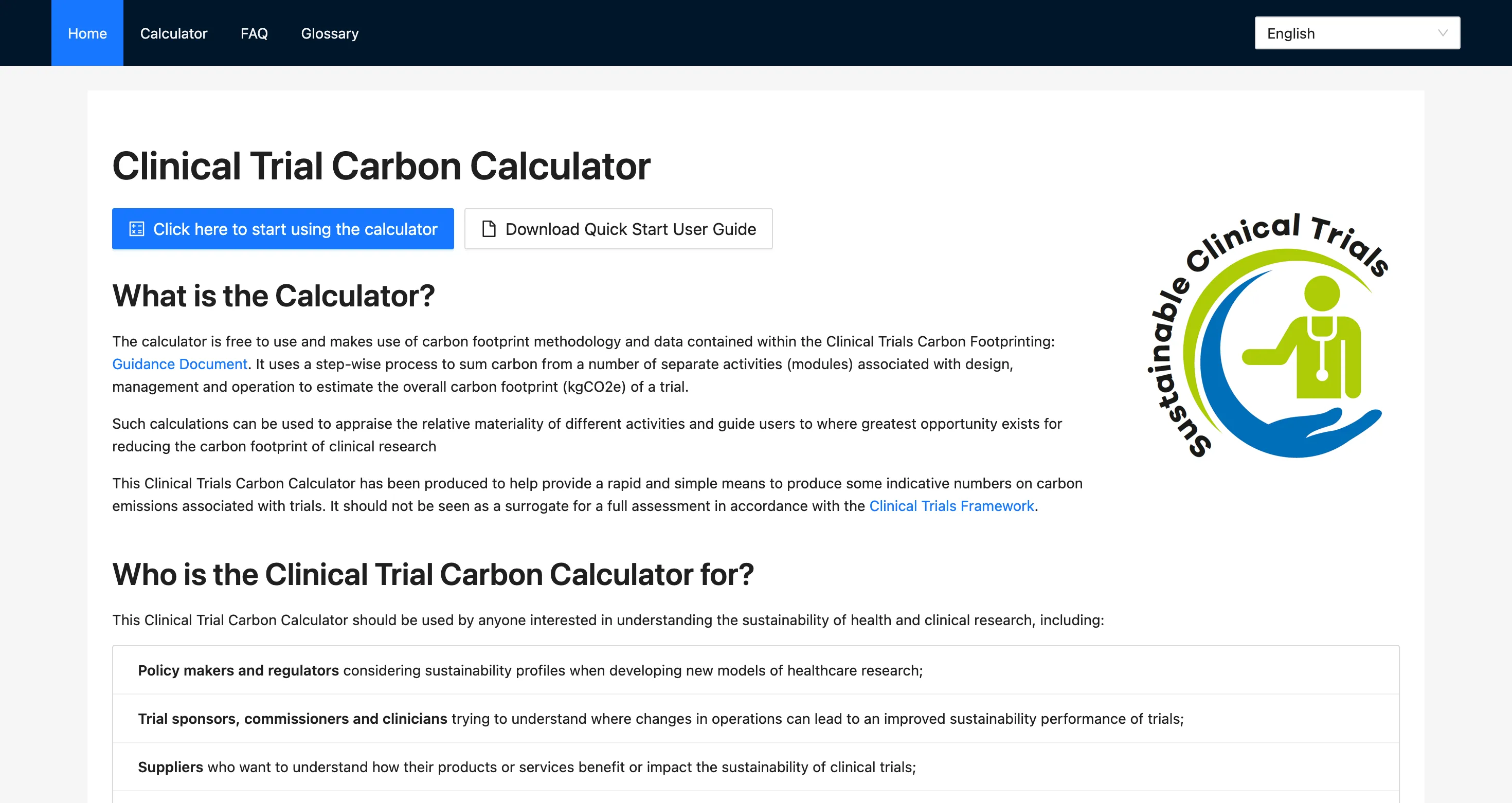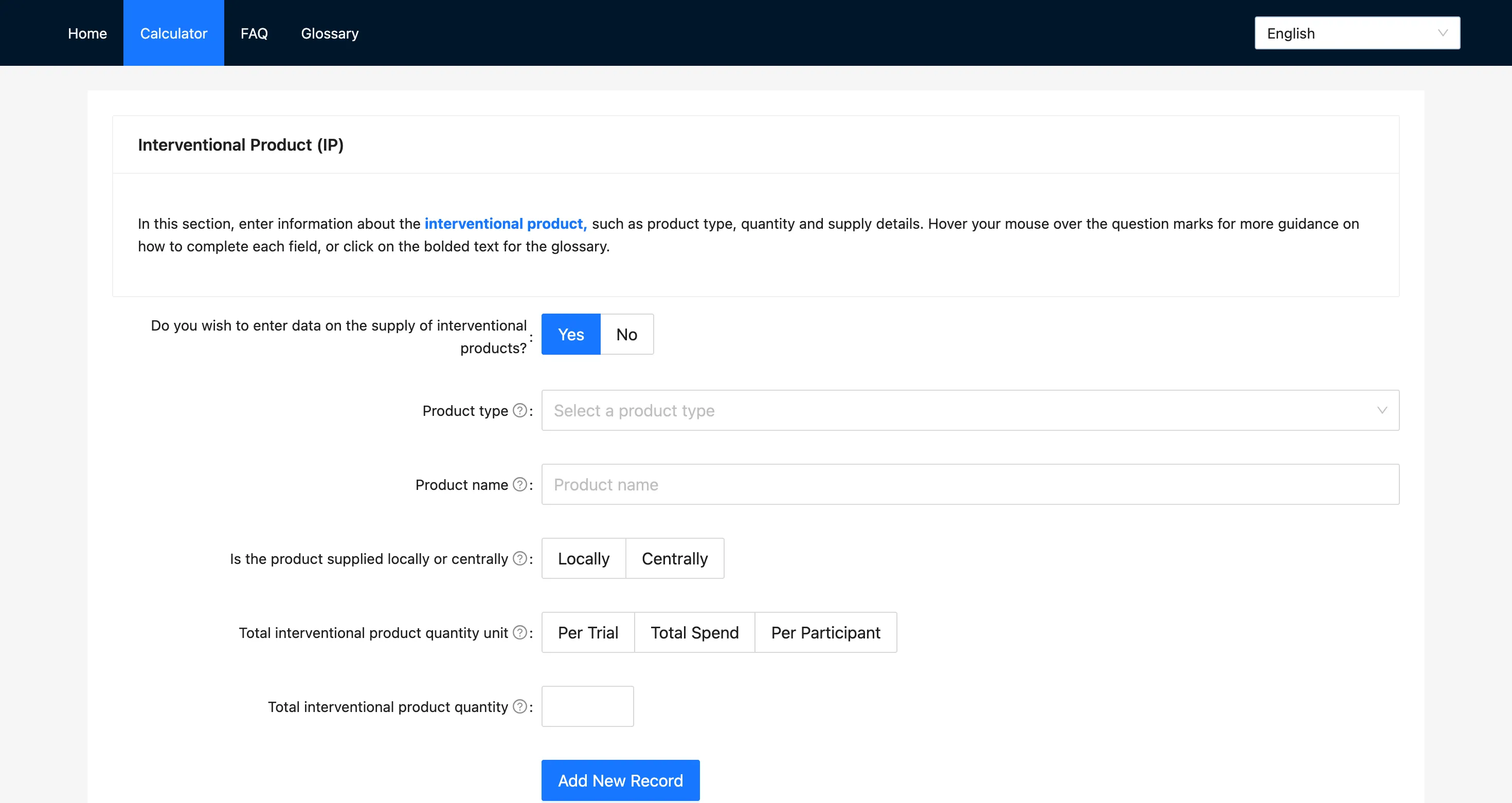iLCCT Case Study
Reducing Carbon Emissions in Clinical Trials
https://clinicaltrialcarbon.org/
Clinical research contributes significantly to global carbon emissions—estimated at ~100 million tonnes of CO₂ annually, similar to Belgium’s national emissions. The iLCCT project was created to help pharmaceutical companies and clinical research organizations (CROs) reduce their carbon footprint by providing a platform to calculate and report carbon emissions from clinical trials.
It is a free, web-based carbon calculator built using Microsoft .NET and ReactJS. It allows a user to segment trial activities into modules and estimates CO₂e emissions per trial and per participant.
Project Overview
Server-Side Calculator Implementation
We developed the back-end logic that powers the core carbon footprint estimation. Key tasks included:
- Translating the SHC Clinical Trial Carbon Footprinting Methodology into executable algorithms
- Structuring emissions factors and activity data into a modular, extensible calculation engine
- Implementing logic to compute total emissions and CO₂e per trial and per participant
- Supporting trial-by-trial customization (e.g., adjusting data granularity for digital, hybrid, or site-based trials)
The calculator segments emissions across categories such as:
- Staff travel
- Patient visits
- Trial site energy use
- Lab procedures and materials
- Freight and delivery
- Digital and decentralized operations (e.g., telemedicine)
Robust Unit Test Framework
To ensure integrity and reproducibility, we delivered a comprehensive suite of unit tests targeting every major logic path in the calculator, including:
- Emissions factor accuracy
- Input validation and edge cases
- Consistency of results across trial types
- Regression testing for logic changes
This test framework now forms the backbone of the calculator’s CI/CD pipeline, supporting reliable deployments and continuous evolution of the tool.

